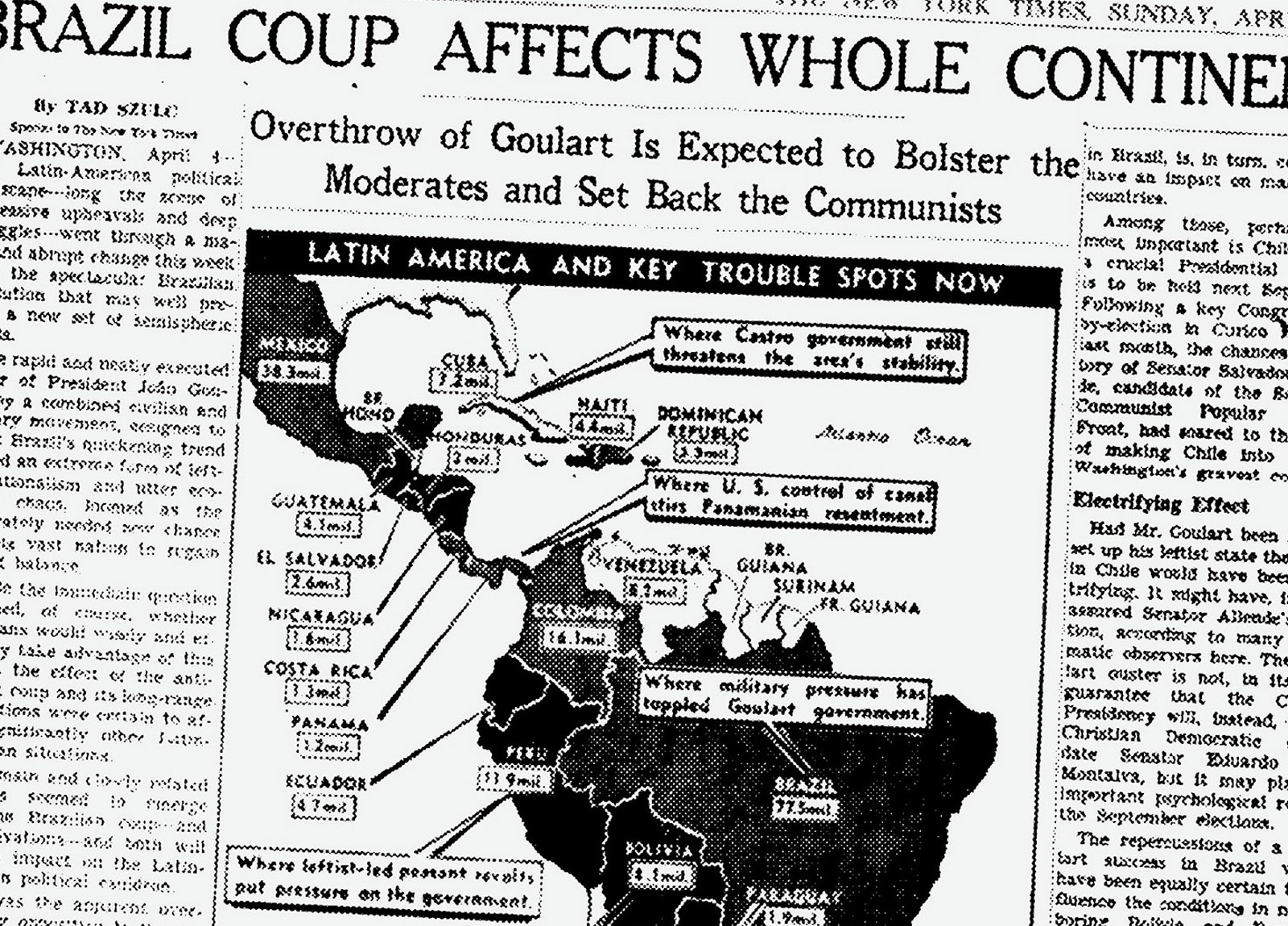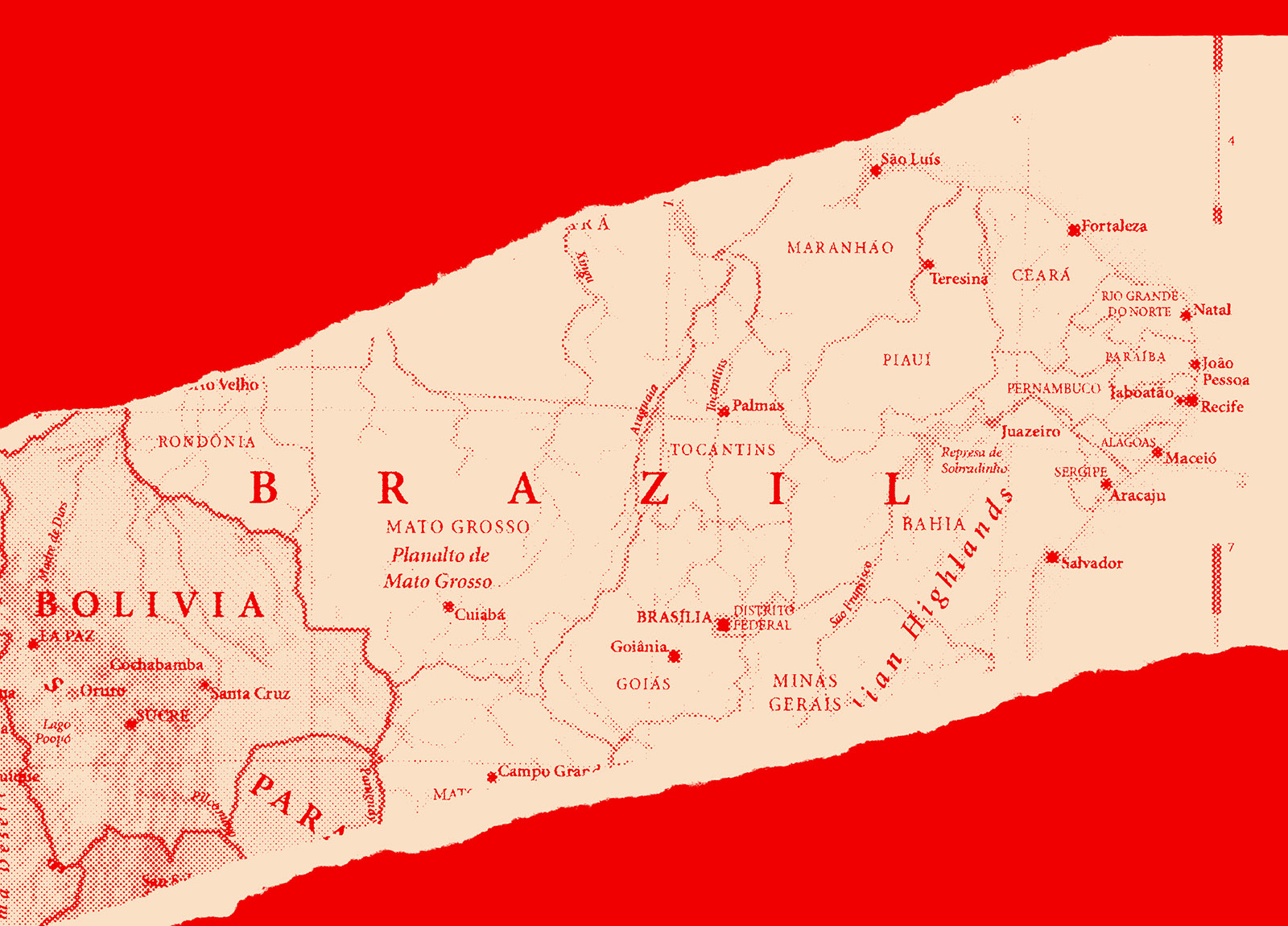In March 1964, Brazilian generals initiated a coup after powerful conservative forces in Brazil — supported by the CIA and President Lyndon B. Johnson — grew tired of moderate President João Goulart’s policies, particularly his push for land reform, his tolerance of domestic communists and his refusal to cut ties with Cuba.
The New York Times celebrated Goulart’s removal, and his replacement with a repressive military junta, as a victory for democracy. The publication’s front-page story the day after the coup peddled Red Scare–style conspiracy theory as fact, writing that “[Goulart] was believed to be planning, with Communist labor, peasant and student support, to disband Congress and to declare a syndicalist, Socialist regime.”
The new generals — whose military government denied Brazil’s democratic constitution until 1985 — were viewed by The Times as “supporters of moderate and constitutional governments.” The paper lauded the “Brazilian military’s support of democratic institutions.”
Shortly after the 1964 coup, The Times asserted that the takeover “followed Brazil’s constitutional procedure” and praised the “removal of the immediate Communist threat.”
Casting the right-wing military takeover as a popular movement toward democracy, The Times characterized the coup as “a powerful shot in the arm for the cause of democratic moderation in Latin America.”
Despite The Times’ remarkable contention that “if a single motivation could be detected in the coup . . . it was their concern to maintain the democratic framework in Brazil,” it marked the end of a short-lived period of democracy in Brazil. The country’s military leaders would go on to partner with the United States to sponsor anti-communist death squads and torture regimes across South America — and further open up Brazil to exploitation by Western corporations.

As the military dictatorship began to arrest suspected communists en masse and violently clamp down on civil liberties, The Times justified these measures as necessary for the realization of democracy, writing that “a majority of the public, like most of the press, appeared to accept the extra powers as the only way to eliminate the Communist menace . . . and to get the economy moving again.”
Another article reads, “Obviously, a majority of Brazilians approved the overthrow of the demagogic President João Goulart, who was leading the country toward leftist extremes.” In reality, however, Brazilians at the time were broadly supportive of redistributive policies like the ones Goulart was trying to implement (in 1962, close to 70 percent of the country supported land reform).
Brazil’s military coup of 1964, cheered on by The New York Times, would inspire a series of copycat coups across Latin America. Chile’s Pinochet, Bolivia’s Banzer, Argentina’s Videla and Massera, Uruguay’s Bordaberry, and other military authoritarians gained from Brazil both inspiration and, later on, the actual tools and tactics of terror.


